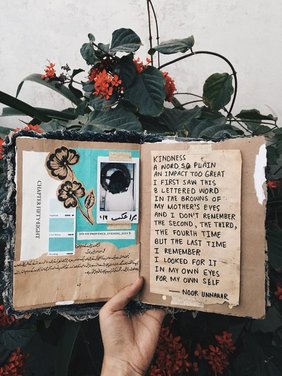
People who stutter tend to be more aware of their speech than anyone else. We tend to have an awareness of when speech is difficult for us and when we can speak with ease. Some of us may also have strong feelings attached to our stutters, whether they be positive or negative.
But at the same time, we may also not be (consciously) aware, for instance, of why those certain situations make things more difficult for us or why we feel the way we do.
One way to break through and gain some insight into our behaviours and emotions regarding our stutters (or really anything else too!) is to start journaling.
Journaling has been shown to assist with personal growth and development, problem solving and stress reduction as well as improved mental and physical wellbeing (Hills, 2012). If you want to improve your perspective and clarify issues surrounding your stutter, I would suggest journaling exclusively about your stutter first. Being able to focus on one thing at time allows you to magnify that section of your life and move yourself forward in the area that needs the most attention.
Journaling can seem daunting, but it’s easy (and fun!). Here are some tips to help you get started on your journaling journey.
1. Date every entry – This way you can track your progress and see how you and your life have evolve over time.
2. Start with an affirmation – This could be a positive quote, a picture, a compliment you got that day or anything that makes you feel good! Starting off this way will help to get something down on the page (especially if you are stuck) and get your brain into writing mode.
3. Write quickly – Don’t overthink it! Just write down exactly how you feel in the moment that you feel it (if possible).
4. Be truthful – Your journal is your place to express your true feelings. Your journal is a place just for you without any judgement. Allow yourself to be truthful to yourself.
5. Keep and Re-Read – Always go back and re-read what you’ve written. You’d be surprised on the insight you gain and knowledge you already had by giving your journal entries a second read through!
Also, remember that journals don’t have to just be pen and paper. You can get creative with it! You can make a journal of drawings, painting, magazine cut outs, or whatever medium speaks best to you.
Happy Journaling!
References
Purcell, M. (2016). The Health Benefits of Journaling. Psych Central. Retrieved from https://psychcentral.com/lib/the-health-benefits-of-journaling/
Hills, L. (2012). 10 Journaling Tips to Help You Heal Grow and Thrive. Tiny Buddha. Retrieved from http://tinybuddha.com/blog/10-journaling-tips-to-help-you-heal-grow-and-thrive/